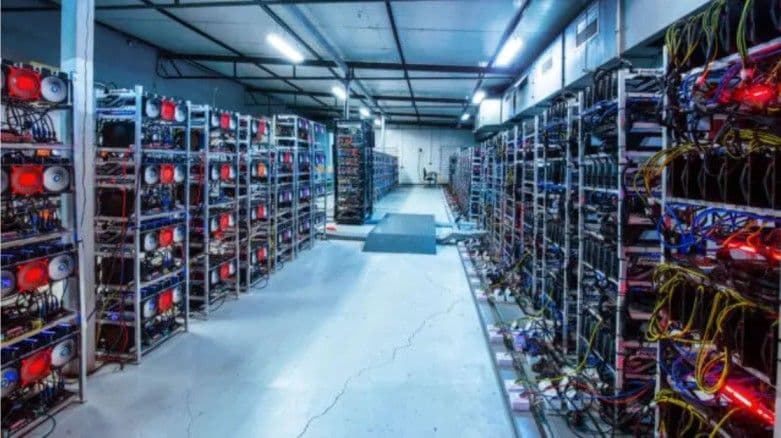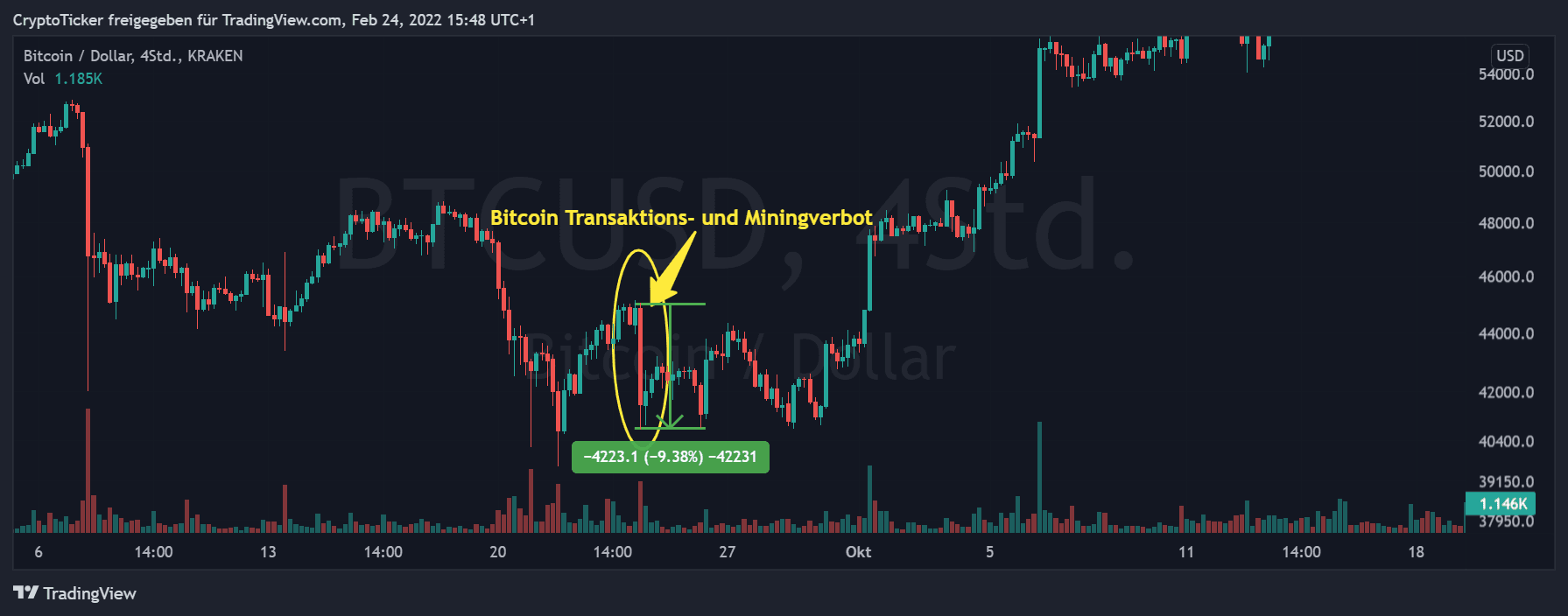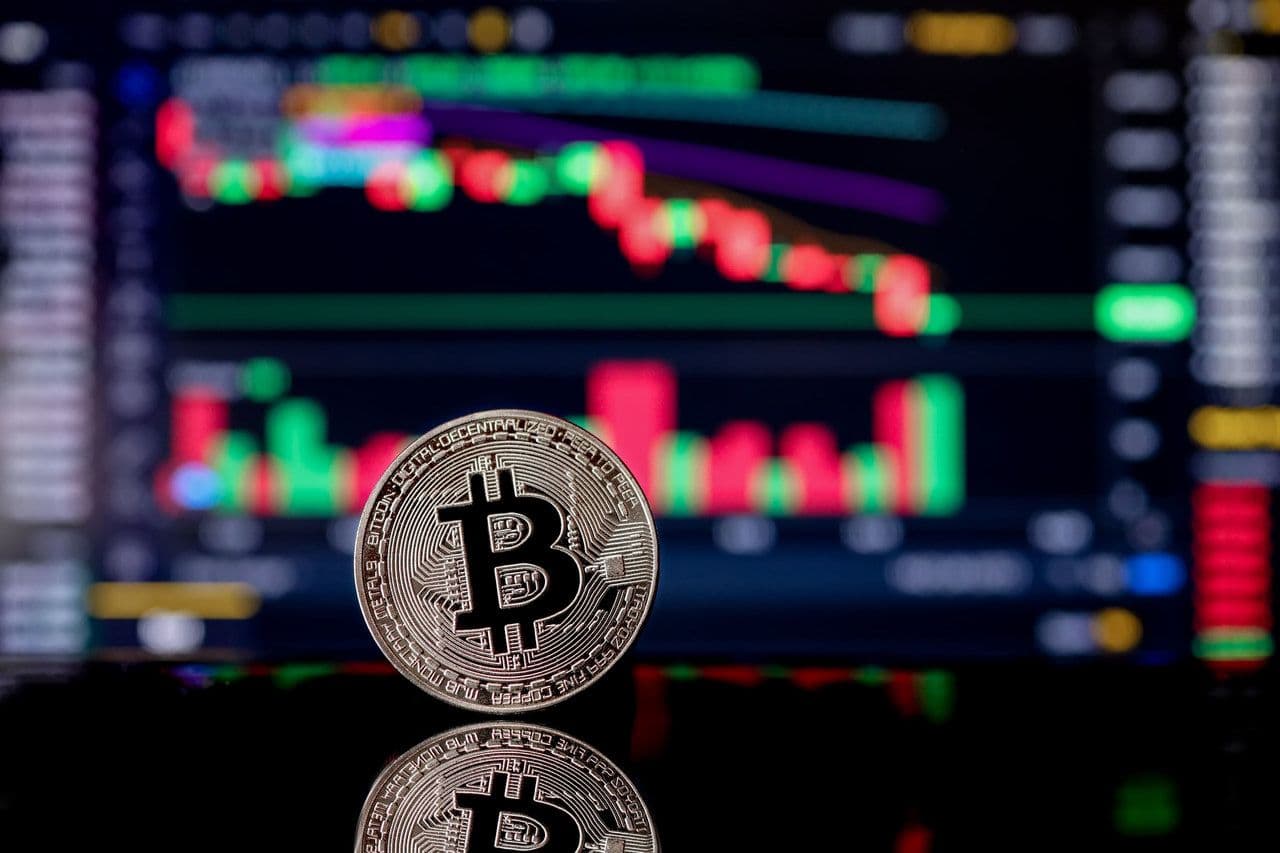Is Bitcoin Mining Illegal? Here’s Everything you Need to Know in 2022
Is Bitcoin mining illegal? In this article, we're going to see where Bitcoin is illegal, where it is legal, and how bans affect Bitcoin prices.

Bitcoin mining has now become a lucrative business. This of course takes into account that you live in a country with acceptable electricity costs or you can generate your own energy cheaply. Most bitcoin mining is done in China because electricity costs and infrastructure are cheap there. Is Bitcoin mining illegal? In this article, we’re going to see where Bitcoin is illegal, where it is legal, and how bans affect Bitcoin prices.

Due to the energy waste of Bitcoin, there are always discussions about the usefulness of mining. There were repeated reports from China that a ban was being considered. It was passed by law on September 24th, which is why the course collapsed briefly. Countries, where bitcoin and bitcoin mining are partially or totally banned today, are China, Morocco, Algeria, Nepal, Bangladesh, Kyrgyzstan, Paraguay, and Ecuador.
Germany and Bitcoin Mining
It cannot be ruled out that Bitcoin Mining will be banned in Germany or the EU. SPD, Greens, and Left have pushed through a draft in the EU Parliament. This states that proof-of-work cryptocurrencies, such as Bitcoin, should be banned. The rule is not unlikely to be enforced as Bitcoin consumes a lot of resources. Thus, Bitcoin mining also harms the environment.
Could Bitcoin Mining become illegal?
It cannot be ruled out that Bitcoin Mining will be banned in Germany or the EU. SPD, Greens, and Left have pushed through a draft in the EU Parliament. This states that proof-of-work cryptocurrencies, such as Bitcoin, should be banned. The rule is not unlikely to be enforced as Bitcoin consumes a lot of resources. Thus, Bitcoin mining also harms the environment.
What happens if Bitcoin Mining becomes illegal?
Basically, one can say that there will be a price crash. However, this price drop could only last for a short time as we already have comparisons in the past. China, for example, has completely banned bitcoin in their country. There was a bearish price reaction, but the price recovered after a short time. The same could happen once the EU bans bitcoin mining. Mining is not actually done in the EU as electricity prices are relatively high compared to other parts of the world. Because of this, a ban might not have a major impact.

On September 24, 2021, China banned bitcoin transactions and mining. The price then fell by around 9%. However, in the above chart, you can see perfectly that the Bitcoin price recovered a short time later and rose even more.
How to Mine Bitcoin?
In order to achieve significant mining results, you need hardware that is specially designed for mining. For example, you can use an Antminer from Bitmain. With this, you can mine bitcoins around the clock. However, you have to keep an eye on your power consumption during this time. In order for Bitcoins to be mined, a lot of electricity is consumed, which is why the electricity costs are enormous.

How does Bitcoin Mining work?
Bitcoin mining is a process where arithmetic tasks are solved by different computers. These computing tasks are extremely complex and, as a result, have a high power consumption. For comparison: A bitcoin transaction costs around €350 in electricity around the world if you take the electricity costs of Germany. For each block, there is a complex arithmetic problem that has to be solved. The computer that has solved the math problem gets a reward. This is a certain number of bitcoins.
Why does Bitcoin Mining exist?
The reason Bitcoin mining exists is because of the proof-of-work system. In this system, all transactions are controlled by other people doing arithmetic. Because of this, there can be no so-called “double-spending”. If nobody controlled the transactions, there would probably be people creating fake transactions. This allows you to send an amount to the same address twice. During this time you only pay the real amount. So that something like this doesn’t happen, there are miners who control these transactions. So that there are people who mine, there are rewards.
Will Bitcoin collapse if no one is Mining anymore?
Nobody will ever mine Bitcoin again. Bitcoin is structured in such a way that as fewer and fewer people start mining Bitcoin, the “difficulty” steadily decreases. This makes the maths easier and easier, which is why people use less computing power. Thus, they get faster in the breakeven zone or in the profit. As a result, bitcoin mining becomes more profitable, and more people are doing it.





























